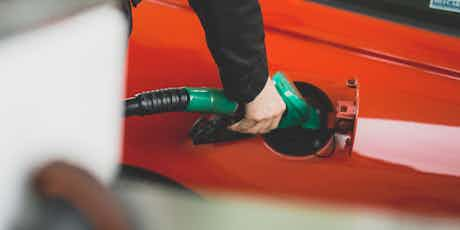E10 petrol explained: what is it and can my car run on it?
October 19, 2022 by carwow staff

With E10 petrol now the standard grade of petrol in the UK, our handy guide breaks down what it is and if your car can run on it.
The petrol you put in your car’s tank changed in September 2021, with the previous ‘E5’ grade of standard unleaded being replaced with ‘E10’ across all filling stations.
The change was introduced as E10 brings with it slightly reduced carbon dioxide (CO2) emissions compared to E5, but it is not without disadvantages, as not all petrol cars are compatible with E10.
What is E10 petrol?
The ‘E’ in E10 refers to ethanol, with E5 having up to 5% ethanol mixed with at least 95% fossil-fuel-based petrol, and E10 having up to 10% ethanol mixed with at least 90% traditional petrol.
Ethanol is a type of alcohol, and can be added to petrol in small quantities without major disadvantages. The ethanol used in both E10 and E5 is a ‘biofuel’, meaning it is derived from fermenting crops to produce alcohol. Because these crops absorb carbon dioxide as they grown,
Why has E10 petrol been introduced?’
Increasing the content of bioethanol in petrol means more carbon-dioxide-absorbing crops are grown, with the switch to E10 being equivalent to 350,000 cars being removed from the roads.
E10 doesn’t produce less CO2 when burned in a car’s engine, though – the CO2 savings are all down to how the ethanol is produced.

Can my car run on E10 petrol?
If your car is built after 2011, this simple answer is yes. Every petrol car built since then has been required to support E10.
Even if your car is older than that, the chances are you’ll be able to put E10 petrol into your car without worrying. As an example, all Subarus made from 1991 are compatible with E10 petrol, while all BMWs, regardless of date of manufacture, are said to be okay with the fuel. Around 95% of petrol cars in the UK are said to be E10 compatible.
If you’re unsure, the Government has an E10 checker where you can find out if your car car run on E10.
What if my car doesn’t run on E10 petrol?
Ethanol isn’t kind to rubber, plastic and some metal components, such as those found in fuel hoses and seals, and using a fuel with twice the amount of ethanol in it compared to the old grade of E5 unleaded may result in issues. But while regular unleaded may contain up to 10% bioethanol, super unleaded remains E5, so one option if your car us not compatible is to run it on super.
You can also buy fuel additives that allow a car that is not compatible with E10 to use the stuff, though it’s worth crunching the numbers to see if an additive would be cheaper than using super unleaded, or vice-versa.
E10 petrol FAQs
How will E10 petrol affect my fuel economy?
Ethanol is less energy dense than oil-derived petrol, so by using a fuel with more ethanol in it you may see a slight hit to fuel economy. A figure of 3% is often quoted, though anecdotal reports indicate a 10% efficiency loss is experienced by some drivers.
What if I put E10 petrol in an incompatible car?
The odd tank of E10 is unlikely to negatively affect a car that isn’t recommended for the fuel, so if you use E10 by mistake or it’s the only fuel available when you need it, you should be okay. Regular use of E10 in a non-compliant car may cause issues, however. If you have a car that can’t take E10, it may be an idea to have a bottle of additive handy on the off chance you get caught short.
Is E10 petrol more expensive?
Nope. Don’t expect the introduction of E10 to bring any financial advantages.
Can I use E10 in a classic car?
Probably not. Ethanol has a corrosive effect on components associated with internal combustion engines of older cars; this could cause issues with the efficient working of the car, but could also result in a dangerous situation if the fuel lines perish due to extra ethanol. Ethanol also absorbs more water than oil-based fuel, so if you have a classic car that you don’t use that frequently, you may find standard unleaded goes bad in-between the occasions where drive use the car.
Can I mix E5 petrol with E10?
Yes. If your car is compatible with E10, it is perfectly safe to combine E10 and E5. Think of it this way: if you have half a tank of E10 and add half a tank of E5, you essentially have a mix that is E7.5 – which will pose no issue for a car that is able to run on petrol composed of up to 10% ethanol.















